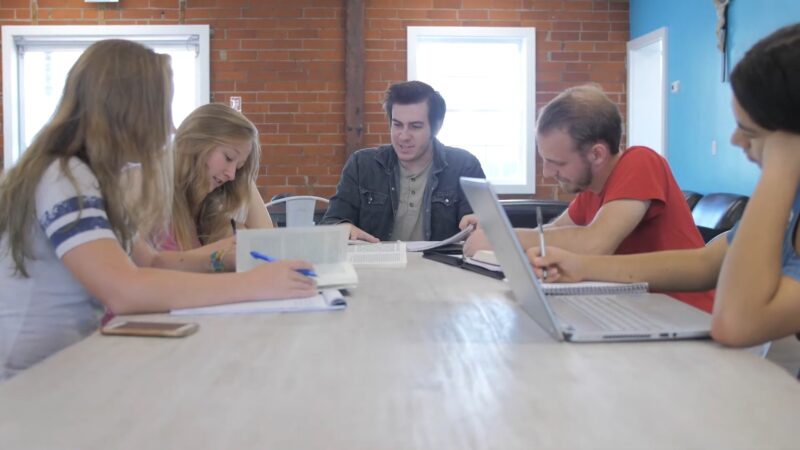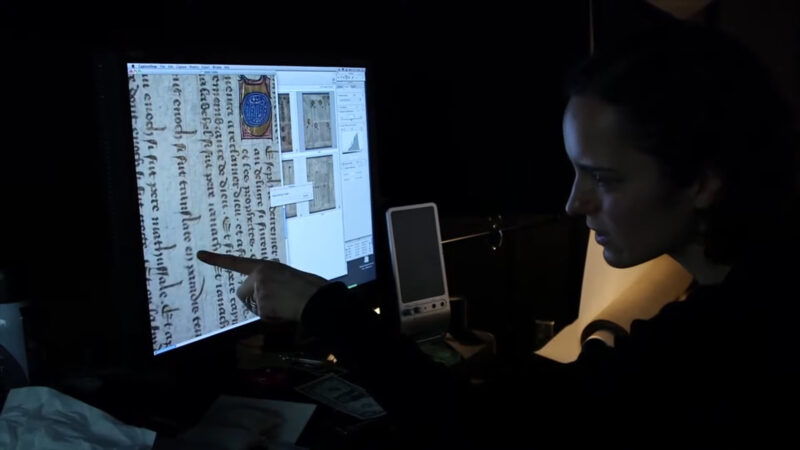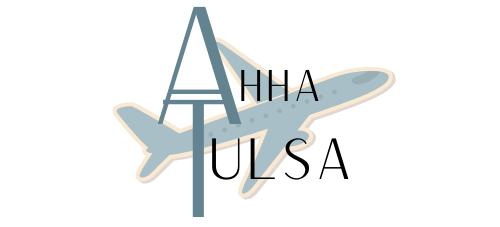A humanities class is an academic discipline that studies the various aspects of human society and culture. This field encompasses a broad range of subjects including literature, philosophy, religion, arts, music, history, and language.
The purpose of a humanities class is to foster critical thinking, enhance cultural awareness, and deepen understanding of the human condition through various perspectives. 🚀📖🌍
Key Takeaways
- Humanities are Essential for a Rounded Education: They cultivate critical thinking, ethical reasoning, and a broad perspective of the human experience.
- Challenges Present Growth Opportunities: Despite facing issues like funding cuts and skepticism about their practical value, humanities have the opportunity to reinvent themselves and demonstrate their relevance in modern society.
- Interdisciplinary Approaches are Key: Combining humanities with STEM and other fields can lead to innovative solutions to complex global issues and provide a more comprehensive education.
- Digital Humanities Expand Access and Engagement: Technology is not just a challenge but also an opportunity for humanities to reach wider audiences and enhance research and education.
- Advocacy and Awareness are Crucial: Supporting, promoting, and advocating for humanities are essential actions to ensure their continued impact and recognition in society.
- Diverse Career Opportunities: Humanities graduates have a wide array of career paths available thanks to the universal skills developed in these fields.
- Global Issues Need Humanities Insight: Understanding and solving global challenges requires the cultural, ethical, and humanistic insights that humanities provide.
- Continual Relevance and Adaptation: Humanities continue to adapt and remain relevant by addressing contemporary issues and integrating modern technologies and methodologies.
What Is The Historical Context?
The whole idea of humanities classes kicked off during the Renaissance period, which was this big cultural party in Europe from the 14th to 17th century. Think of it as the time when Europe woke up from a long nap and said, “Let’s make some cool art and rethink everything!” 🎨🤔
The word “humanities” comes from the Latin word “humanitas,” which is all about human nature and being kind. Back in the day, if you were studying humanities, you were diving into stuff like grammar, rhetoric, history, poetry, and moral philosophy.
These were the big hits from ancient Greece and Rome that everyone thought were essential for being a smart and virtuous person. Renaissance folks were all about celebrating humans and what we can do.
This was when legends like Leonardo da Vinci and Michelangelo were doing their thing, showing off human beauty and emotion in their art. Writers and thinkers like Erasmus were also busy exploring what makes us human and how we should live together in society.
This era was a game-changer for education. It moved away from the old-school, churchy vibes of medieval times and pushed for a more secular, critical way of thinking.
People started to think education, especially in the humanities, could level up individuals and society. 🏰➡️🏛️ So, the Renaissance was basically when everyone agreed that learning about humanities was a big deal for personal growth and making the world a better place.
And that’s the vibe we’ve carried into today’s humanities classes – thinking critically, understanding others, and getting a well-rounded view of the world. All thanks to that Renaissance glow-up! 🌟
Core Subjects in Humanities

| Core Subject | Description | Sub-disciplines or Focus Areas |
|---|---|---|
| Literature | The study of written works explores themes, characters, and narratives to understand human experiences and values. | Poetry, Novels, Drama, Non-fiction, Literary Criticism, Comparative Literature |
| Philosophy | Examining fundamental questions about existence, knowledge, values, reason, and ethics. | Metaphysics, Ethics, Logic, Aesthetics, Political Philosophy, Epistemology |
| History | Investigating past events to understand how they influence the present and future. | World History, Cultural History, Political History, Economic History, Social History |
| Art History and Criticism | Understanding the historical context, symbolism, and technique behind artistic creations. | Renaissance Art, Modern Art, Visual Analysis, Theory of Art, Curatorial Studies |
| Musicology | Exploring the history, theory, and composition of music as a form of cultural expression. | Ethnomusicology, Music Theory, Music History, Music Composition, Music Technology |
| Languages and Linguistics | Studying the structure, history, and cultural impact of languages. | Sociolinguistics, Historical Linguistics, Applied Linguistics, Phonetics, Syntax, Semantics |
Lesser-Known Subjects
Cultural Studies: This is all about looking at the different aspects of culture and how they impact who we are and how we see the world. It’s a mix of a bunch of different areas like media studies, where you might look at how TV or social media shapes society, and post-colonial studies, which dives into how historical colonialism affects current cultures. It’s pretty cool because it looks at everything from comic books to high art to understand society.
Comparative Religion: Ever curious about what different religions have in common or how they’re unique? That’s where comparative religion comes in. It digs into the beliefs, practices, and sacred texts of various religions to spot similarities and differences. You get to explore everything from ancient mythology to modern-day spiritual practices and understand the huge role religion plays in cultures around the world.
Gender and Sexuality Studies: This subject is all about exploring gender and sexuality, crucial parts of our identity and society. It’s where you might discuss everything from the roles men and women traditionally play in society to the experiences of LGBTQ+ communities. It’s super relevant today as conversations about gender and sexuality are evolving and becoming more central in discussions about human rights and societal norms.
Digital Humanities: Mix the old with the new! Digital humanities is like the techy side of humanities, using all the latest digital tools to research and present on traditional humanities topics. Imagine using software to analyze ancient texts or creating an online archive of historical artifacts. It’s a cool blend of the past and the future!
Performance Studies: This isn’t just about acting and theatre—though those are part of it. Performance studies look at all types of cultural performances, from traditional theatre to political rallies, and even everyday interactions as forms of performance. It’s about understanding how these performances communicate messages and values and how they impact both participants and audiences.
Area Studies: Want to become an expert on a particular part of the world? Area studies might be for you! Whether it’s Latin American, African, Middle Eastern, or Asian studies, this subject focuses on understanding the history, culture, politics, and more of a specific region. It’s super interdisciplinary, often mixing history, politics, language studies, and more to get a comprehensive understanding of an area.
These subjects are super fascinating, right? They offer fresh perspectives on how we understand human cultures, societies, and behaviors. Plus, they’re always evolving, bringing in new ideas and technologies to keep things interesting! 🌍📚🔍
Why Are These Subjects Important?

They Make Your World Bigger
Ever feel like you’re living in a bubble? Humanities pop that bubble right open!
They toss you into different eras, cultures, and ideas. One day you’re chilling with Shakespeare, the next you’re vibing with Van Gogh, and then you’re debating what “justice” really means.
This isn’t just cool; it helps you understand and respect different people and places. Perfect for globe-trotters and anyone looking to get along in our global village.
Critical Thinking is the Name of the Game
Humanities are all about asking the big questions. Why? How? What if?
They turn you into a detective, always on the lookout for clues, digging deeper, and not taking things at face value. Whether it’s a novel, a painting, or a historical event, you learn to peel back the layers and see what’s going on.
And guess what? That’s a superpower in today’s world, where figuring out the real deal from fake news is more important than ever.
Your Moral Compass Gets an Upgrade
Ethics and morals aren’t just fancy words in humanities; they’re what many classes are all about. You’ll face tough questions and grey areas.
How should people live? What’s right and wrong?
Engaging with these helps you develop your sense of right and wrong and understand others’ viewpoints too. Handy for, well, pretty much every life situation!
Diversity Is Celebrated
Humanities are like a world tour of cultures without the jet lag. You’ll meet a dizzying array of societies and viewpoints.
It’s like a crash course in empathy and understanding. By the time you’re done, you’ll see the world in Technicolor, appreciating all its different vibes and voices.
This is key for working in our mixed-up, mashed-up world.
Skills Galore!
Think humanities are just about memorizing names and dates? Think again!
They teach you how to argue your point, solve complex problems, and communicate like a boss. Whether you’re eyeing a future as a hotshot lawyer, an advertising guru, or anything in between, these skills are your golden ticket.
Learning Becomes a Way of Life
One of the coolest things about humanities? They can light a fire in your heart for learning that lasts a lifetime.
Maybe you’ll fall in love with ancient Rome, modern art, or the poetry of far-off lands. Whatever catches your fancy, humanities keep you curious, exploring, and growing long after you’ve left the classroom.
Challenges and Opportunities

Despite their significance, humanities subjects often face challenges such as funding cuts, declining enrollment, and skepticism about their practical value. However, these challenges also present opportunities for reinvention and advocacy.
There is a growing recognition of the importance of interdisciplinary studies, combining humanities with science, technology, engineering, and mathematics (STEM) fields to address complex global issues.
The Tough Stuff
- Money Matters: Cash flow for humanities is more like a drip than a flow these days. Lots of institutions are cutting back on funding because they’re not seen as “practical” or “job-ready” like their STEM counterparts. This means fewer resources, less research, and sometimes even saying bye to entire departments.
- Enrollment Ebb: Humanities classes are seeing fewer butts in seats. With everyone hyped about getting into careers in tech, science, and business, humanities are getting a bit of the cold shoulder. This trend is worrying because fewer students mean less vibrancy and diversity in these fields.
- The “So What?” Syndrome: There’s a lot of side-eyeing about what humanities can do for you. “What job will that get you?” is a question humanities majors hear a lot. This skepticism puts humanities in a tough spot, constantly having to justify their worth.
The Cool Part
- Interdisciplinary Innovation: Here’s where it gets exciting! Humanities are mixing it up with STEM fields in what’s called interdisciplinary studies. Imagine blending psychology with artificial intelligence or ethics with biotechnology. This mash-up means fresh perspectives, innovative solutions, and cooler, more comprehensive ways of looking at problems.
- Advocacy and Awareness: The challenges are rallying people to defend and promote humanities. There’s a growing movement of folks advocating for the value of understanding history, culture, and ethics. They’re pushing for policies, funding, and public recognition of the humanities’ role in a balanced education and society.
- Real-World Relevance: As our world gets more complex, the need for the deep understanding and critical thinking that humanities provide is getting super obvious. People are starting to see that to tackle big issues like climate change, inequality, or global health, you need the insights and ethical grounding humanities offer. This relevance is a powerful argument for their importance.
- Digital Humanities: Tech isn’t just for the techies. Humanities are getting a digital makeover, using new tools to research, create, and teach. This not only makes humanities more exciting and accessible; it also shows how they’re evolving and staying relevant in a digital world.
Alright, so humanities are definitely up against some challenges, no doubt about it. But remember, with every tough spot, there’s a silver lining or an opportunity to make things better.
It’s about taking these challenges and using them as a springboard for innovation, for proving just how crucial humanities have always been, are right now, and will continue to be in the future. It’s about transforming these hurdles into opportunities for growth and renewed relevance.
Let’s turn these obstacles into stepping stones for a brighter, more insightful future! 🌟📚🌏
FAQs

How can individuals support the humanities in today’s technology-driven society?
Individuals can support humanities by advocating for their importance, both in education and in public policy. They can also engage with humanities content, attend local cultural events, enroll in humanities courses, and support institutions and organizations that promote humanities research and education. Sharing and promoting humanities-focused content on social media can also raise awareness of their value.
What career paths are available for students who major in humanities?
Humanities majors have a wide array of career paths available, including education, writing and journalism, public relations, law, politics, public administration, cultural management, marketing, and more. The critical thinking, communication, and analytical skills developed in humanities studies are highly valued in various fields.
How are digital humanities changing the traditional study of humanities subjects?
Digital humanities are integrating technology with traditional humanities scholarship. This includes using data analysis to study texts, creating digital archives of historical artifacts, and even using virtual reality to experience ancient cultures. These innovations are making humanities studies more accessible, engaging, and capable of tackling large-scale research questions.
Can studying humanities help in understanding and solving global issues?
Absolutely! Humanities provide critical insights into culture, ethics, and human behavior, all of which are crucial for addressing global issues like climate change, inequality, and conflict. By understanding the humanistic aspects of these issues, we can approach solutions with empathy, ethical consideration, and a deep understanding of diverse cultural perspectives.
Are there any organizations or movements specifically aimed at promoting humanities?
Yes, there are many! Organizations such as the American Academy of Arts & Sciences, National Humanities Alliance, and various humanities councils and foundations work to advocate for funding, research, and education in humanities. Movements like #SaveTheHumanities on social media also raise awareness and advocate for the importance of humanities in education and society.
How can interdisciplinary studies benefit students and professionals?
Interdisciplinary studies, which combine humanities with fields like science and technology, provide a more rounded and comprehensive education. For students, this approach fosters creativity, adaptability, and problem-solving skills. For professionals, it encourages innovative thinking and a broader understanding of complex issues, making them more effective and versatile in their careers.
Final Words
A humanities class is not just an academic requirement; it is a journey into understanding human culture, behavior, and values. It equips students with the tools to critically analyze the world around them, appreciate the richness of human diversity, and contribute meaningfully to society.
As we navigate the complexities of the 21st century, the insights and skills gained from humanities classes remain indispensable in creating a more thoughtful, inclusive, and innovative world. 🍋📚

